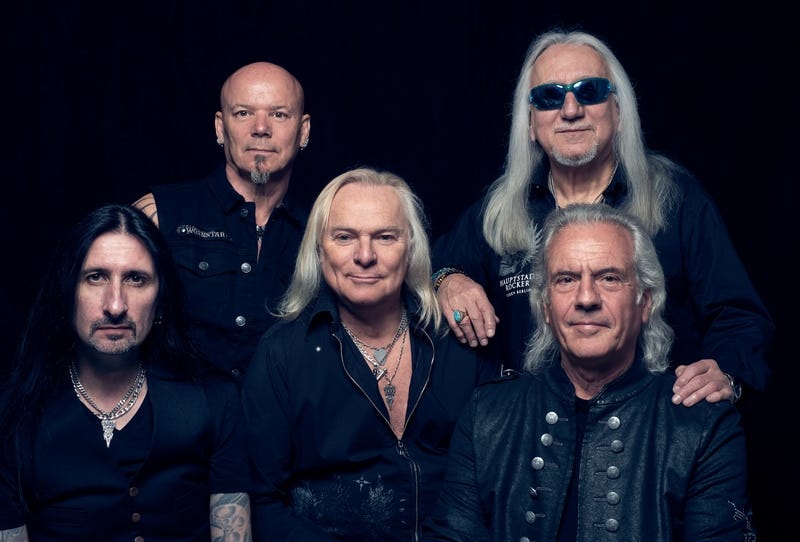Uriah Heep
Uriah Heep is a British rock band that emerged in the late 1960s as part of the progressive rock and hard rock movements.
The band has had a long and storied history, characterized by numerous lineup changes and a dedicated fan base. Here's a detailed history of Uriah Heep:
Formation (1969):
Uriah Heep was formed in 1969 in London, England. The band's original lineup consisted of:
1. David Byron - Vocals
2. Mick Box - Guitar
3. Ken Hensley - Keyboards and Guitar
4. Paul Newton - Bass
5. Nigel Olsson - Drums
The band's name was inspired by a character named Uriah Heep from Charles Dickens' novel, "David Copperfield."
Early Years (Late 1960s - Early 1970s):
Uriah Heep's debut album, "Very 'Eavy... Very 'Umble," was released in 1970. It received critical acclaim and set the stage for the band's distinctive sound, which combined heavy guitar riffs, soaring vocals, and a strong organ presence. The follow-up album, "Salisbury" (1971), included a 16-minute title track and further solidified the band's progressive rock credentials.
In 1971, Nigel Olsson left the band and was replaced by Lee Kerslake on drums. Uriah Heep continued to release successful albums, including "Look at Yourself" (1971) and "Demons and Wizards" (1972), featuring the hit "Easy Livin'."
Lineup Changes and Continued Success (Mid-1970s):
The early 1970s saw significant lineup changes, with Gary Thain replacing Paul Newton on bass and Mark Clarke filling in for a brief period. However, the classic lineup remained fairly stable until 1975 when John Wetton briefly replaced Gary Thain.
During this time, Uriah Heep released albums like "The Magician's Birthday" (1972) and "Sweet Freedom" (1973). These albums showcased the band's ability to combine hard rock with progressive elements and helped maintain their popularity.
Later 1970s and 1980s:
As the 1970s progressed, Uriah Heep's popularity began to wane. They released albums like "Wonderworld" (1974) and "Return to Fantasy" (1975), but their commercial success was not as consistent as in their earlier years.
Ken Hensley left the band in 1980, and this marked the end of the classic lineup. The band continued with various lineup changes throughout the 1980s and released albums like "Abominog" (1982) and "Head First" (1983).
1990s and Beyond:
Uriah Heep continued to tour and release albums into the 1990s, with Mick Box being the only constant member. Their sound evolved, incorporating more elements of melodic rock. Albums like "Different World" (1991) and "Sonic Origami" (1998) kept the band's legacy alive.
Despite numerous lineup changes and shifts in musical direction, Uriah Heep has maintained a dedicated fan base around the world. Their contributions to the world of progressive and hard rock have left an indelible mark on the music industry.
Legacy:
Uriah Heep remains an influential and enduring band in the rock music landscape. They are known for their distinctive blend of rock styles, including progressive, hard rock, and heavy metal. Classics like "Lady in Black," "Easy Livin'," and "July Morning" continue to be fan favorites, and the band's music has influenced countless artists over the years.
In summary, Uriah Heep's history is marked by a blend of musical innovation, numerous lineup changes, and a dedicated fan base that has allowed the band to enjoy a long and successful career in the world of rock music.
